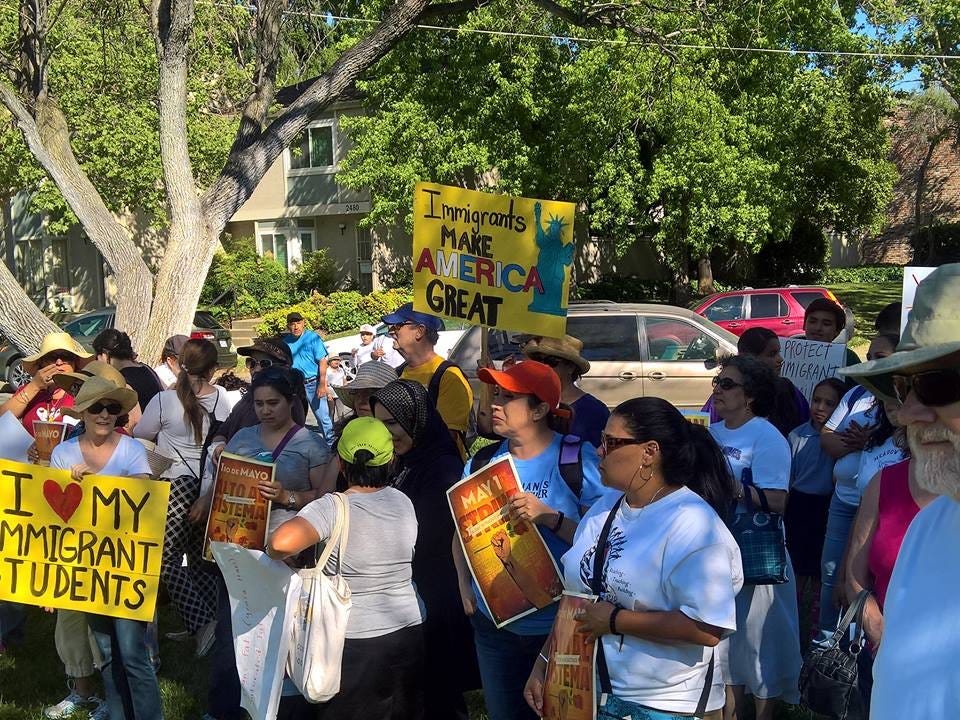
The Bay Area has had a strong activist community for generations, from the hippies to the Black Panthers to those involved in the modern LGBTQ rights movement. But in the past, these activists generally organized within the same geographical boundaries, staying within the confines of the Bay’s urban core — San Francisco and the East Bay as it stretches from East Oakland to Richmond.
Yet since Donald Trump was elected president, there has been a noticeable surge in suburban protest marches. Will the trend end in four to eight years when Donald Trump leaves office? Or is this a sign that those living in San Francisco’s suburbs are sick of being relegated to the political sidelines and have now decided to strive for change in their own communities?
“Our community in Concord started to realize that we might end up homeless because the Bay doesn’t have enough housing, or deported because Trump made racists think it’s OK to hate on us.”
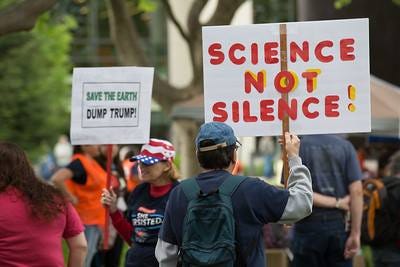
Likewise, these suburban protests aren’t limited to blue-collar communities like Concord, Hayward or Vallejo. More affluent suburbs—like Walnut Creek, Palo Alto and Mountain View—have been a recent site of huge protests. If these protests continue — more specifically, bridge the gap between different socioeconomic standings — it could mean the start of something big.
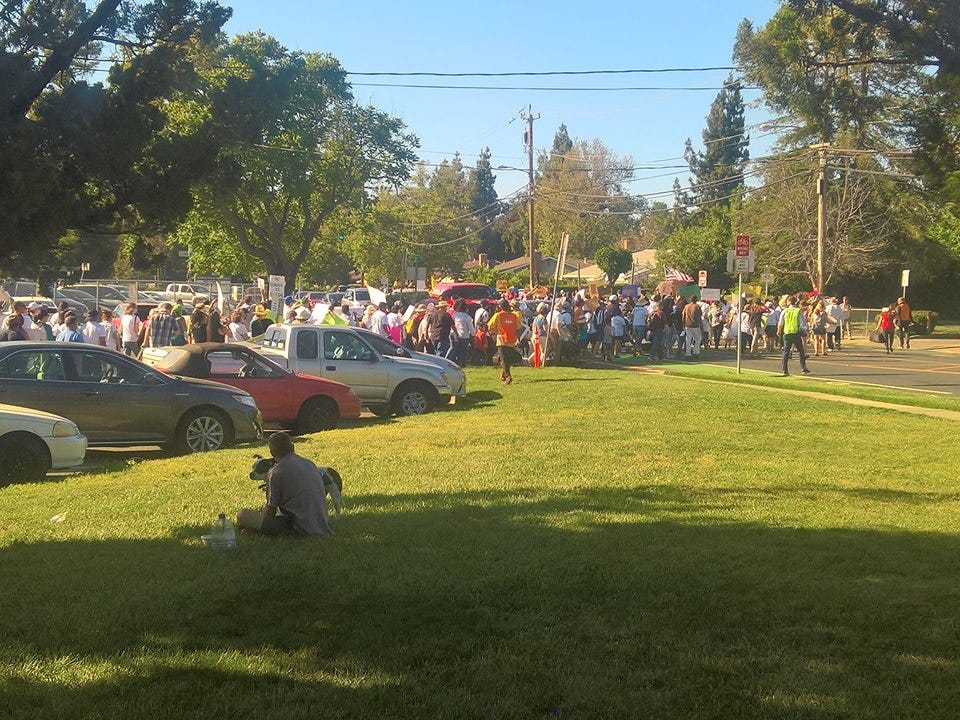
Curious about the new trend of suburban demonstrations, I attended the May Day march in Concord last week. The protest started in Concord’s ethnically diverse Monument Corridor as the protesters marched from Detroit Avenue to Todos Santos Plaza.
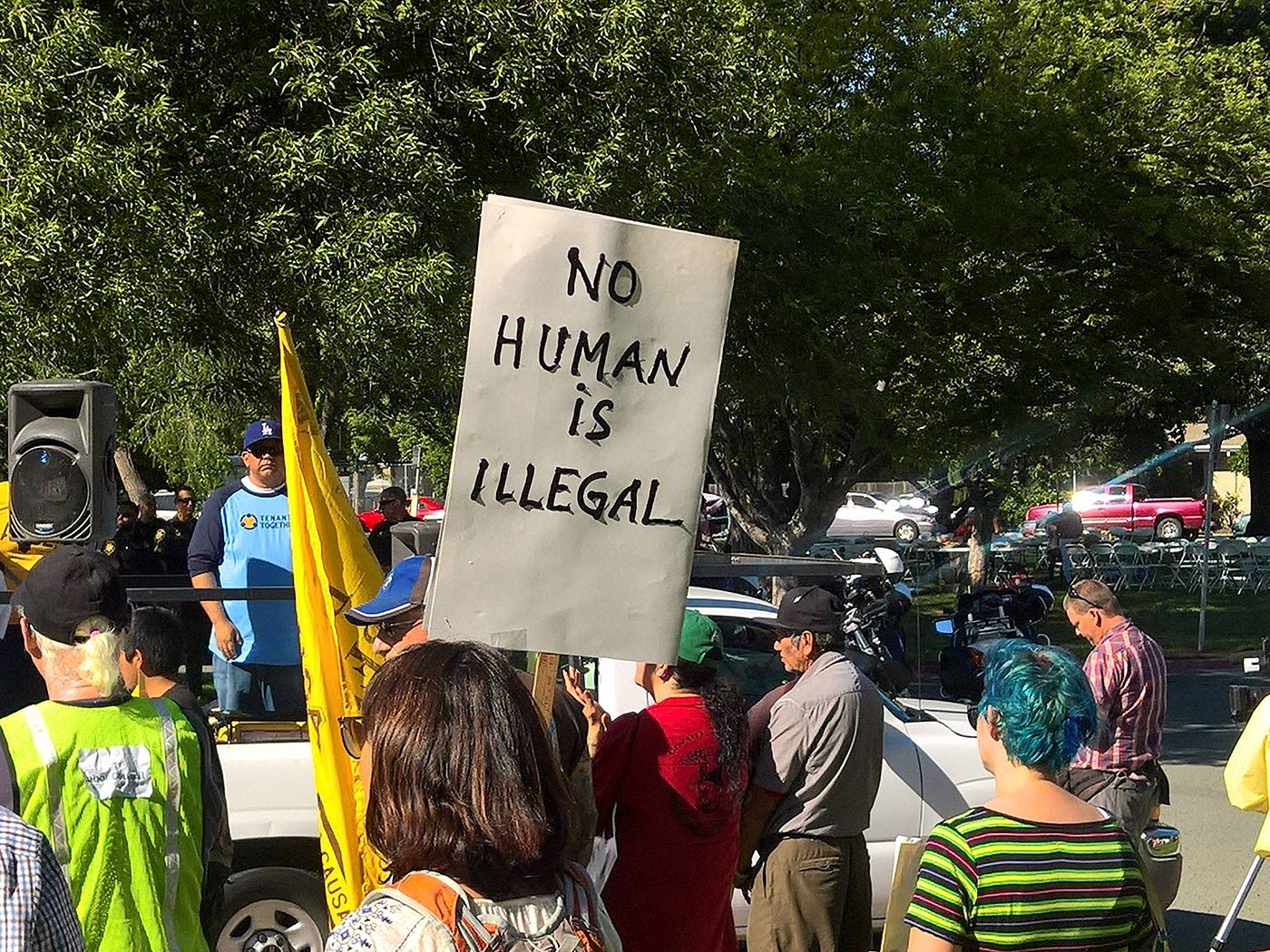
As I made my way through the crowd — which was bigger than I had expected — I had the opportunity to converse with protesters and find out their perspectives on suburban activism; why they chose to do it here rather than attend larger demonstrations in San Francisco or Oakland; and their theories about why bedroom communities like Concord, with little history of activism, have suddenly demonstrated a newfound interest in social justice.

The first person I spoke with was a self-described Chicana named Esperanza, who had left Mexico when she was two and spent her entire life in and around Concord’s Monument Corridor. Other than declining my request to take a photo because she was “having a bad skin day,” she was extremely passionate and candid. Esperanza told me that cities like Concord have always felt far removed politically from cities like Oakland, despite the close proximity:
“You’d hear about bad things happening in like San Francisco and the town (Oakland), but it always felt safe here. Like we had our community, and we never really felt threatened. But when rents started getting hella high, and then Trump started badmouthing Mexicans and other nationalities—that’s when things started to become tense. I guess we never had a reason to protest before. Now our community in Concord started to realize that we might end up homeless because the Bay doesn’t have enough housing, or deported because Trump made racists think it’s OK to hate on us.”
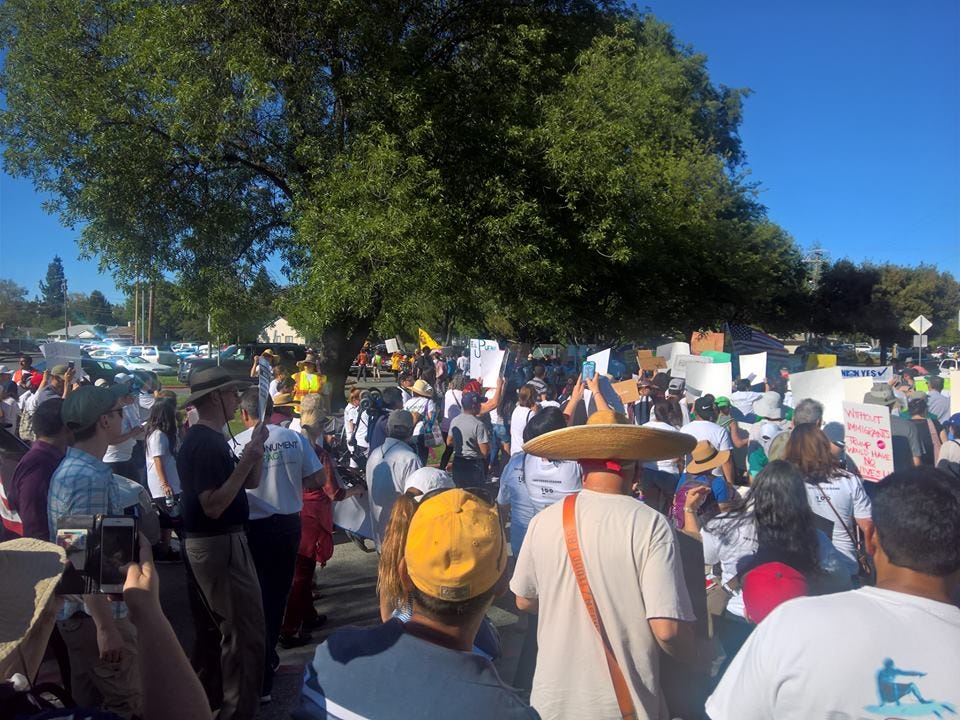
Many of the others I spoke to made similar statements. However, I was surprised by James, an older white man, who said to me, “I used to be anti-immigrant. But a few years back, I guess I got forced to confront my prejudice. These are good people. They deserve good things. They don’t deserve a president who unfairly targets them.”
I asked James to explain what he meant when he said he was forced to “confront his prejudice.”
“Well, do you have some time? It’s kind of a long story.” I said yes.
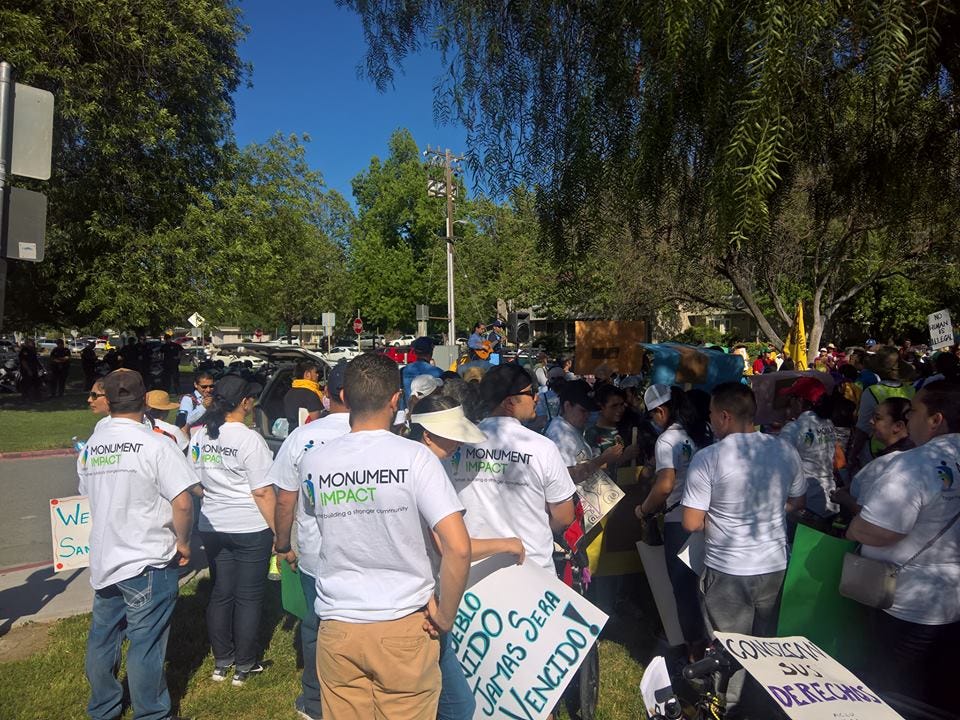
“I was born and raised here in Concord. I remember when only white folks lived out here. All the black and brown folks lived on the other side of the Caldecott Tunnel, with maybe the exception being Pittsburg. A lot of blacks lived out there even when I was young, but no one went to Pittsburg for that reason. That’s the way it was meant to be. The suburbs were made to be for whites only. No one would say it out loud, but we all knew it, and we all liked it that way. This started to change in the ’80s, and a lot of people were bitter because it seemed Concord was, as some would say, becoming Little Mexico. I carried this passive hate in my heart for a long time. My family would say mean-spirited things about Mexicans all the time. Anytime you’d hear a news story about a crime happening in Concord, we’d assume it was because of Mexican gangs. I guess I felt bitter too. In my head, Mexicans were threatening American union members because they’d work for so damn little…I’m going on a rant. To make a long story short, Mexicans weren’t the problem. I was just being a grumpy, prejudiced A-hole.”
His eyes became teary.
“About five or so years ago, I was driving down Monument near where the Costco is, and a van came speeding out of the parking lot and hit the side of my car so damn hard that I was pushed into oncoming traffic, and another car hit me head on. I bashed my head on the steering wheel pretty hard. As a matter of fact, I may have blacked out. I woke up to this Mexican guy, who barely spoke any English, holding an ice pack to my head in the middle of Monument. He even called 911. Turns out he was illegal. He risked his livelihood to help me. He didn’t have to do that. From that day forward, I realized I had to let my hate go. And that’s why I’m here today. Everyone deserves a shot at the American dream. People just need to open their hearts and minds. Even me.”
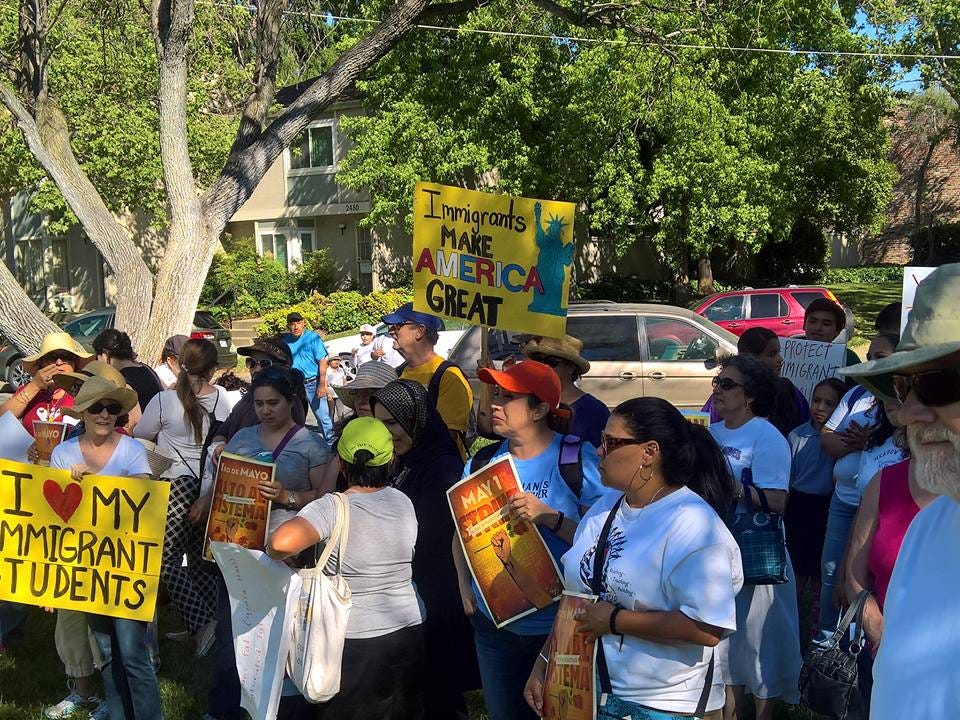
After marching through downtown Concord and speaking with some of my fellow marchers, I felt strangely optimistic about America. Yes, the Trump administration is horrifying, but Trump’s attempts at division seem to be uniting us in places one wouldn’t expect. If suburban cities like Concord and elsewhere join our counterparts in the urban centers, as well as forgotten rural landscapes that geographically divide the metropolitan areas, a better America is inevitable.







